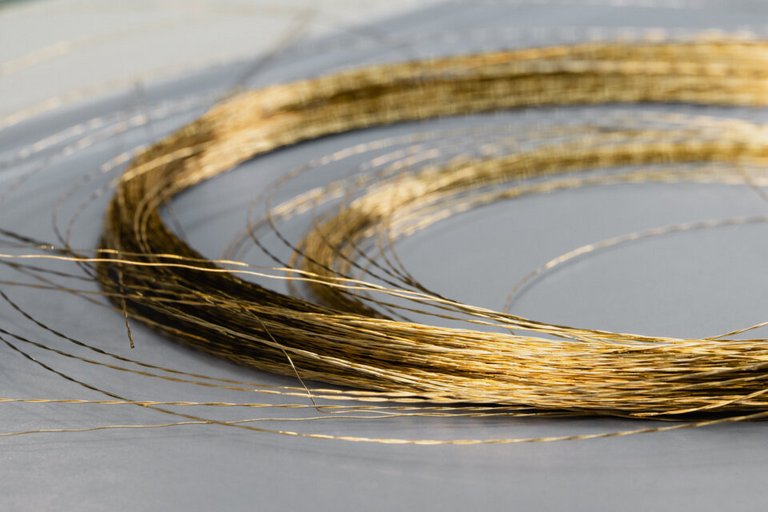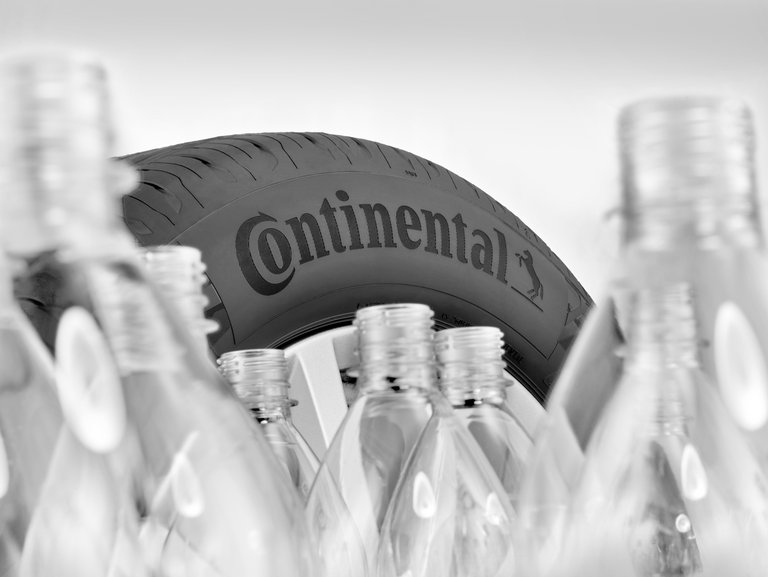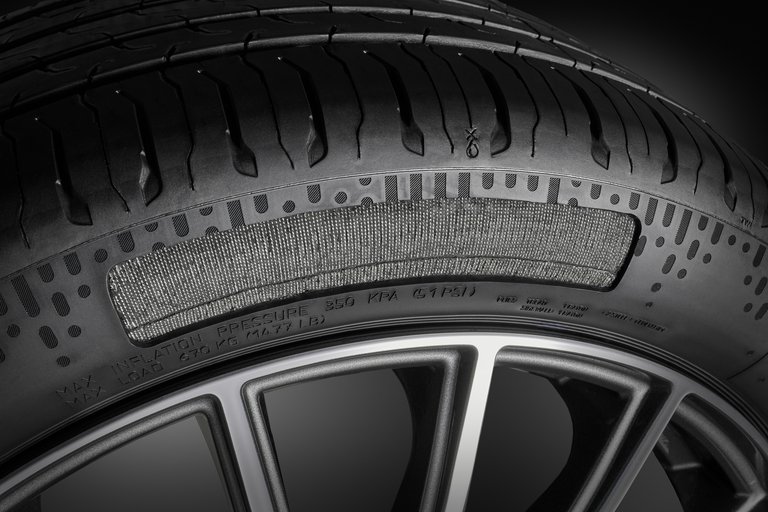Sustainably Reinforced: Continental Expands Use of Recycled PET, Recycled Steel and COKOON in Its Tires
- Tire manufacturer increases share of renewable and recycled tire production materials
- More sustainable production with recycled steel and PET bottles as well as innovative, more environmentally friendly COKOON adhesion technology
- Dr. Matthias Haufe, head of Material Development and Industrialization at Continental Tires: “We are not reinventing the wheel – but we are reinventing the tire, with more sustainable materials and more environmentally compatible production processes”
Hanover, Germany, October 22, 2025. Continental is integrating even more renewable and recycled materials into its tire production. Committed to the principles of the circular economy, the tire manufacturer is also motivating its suppliers to increasingly develop and provide sustainable materials to manufacture tires. While Continental's share of renewable and recycled materials in tire production averaged 26 percent in 2024, the company's goal is to increase this figure to at least 40 percent within the next five years.
A major focus is on identifying and introducing sustainable alternatives for raw materials that are used today to reinforce tires – in other words, materials that assure dimensional stability and performance over the tire’s lifetime. These are primarily made of steel and textiles, which make up around 18 percent of the materials used in passenger-car tires. In commercial-vehicle or specialty tires, this share can be even higher. Continental is continuously expanding its use of more sustainable materials, including recycled steel and polyester yarns made from recycled PET bottles. More sustainable manufacturing methods, such as those used in COKOON adhesion technology, are also being introduced in tire production. Furthermore, the company is using innovative alternatives across all raw material groups, such as synthetic rubber from used cooking oil, resins from bio-based waste materials and silica from the ashes of rice husks.
“We are not reinventing the wheel – but we are reinventing the tire, with more sustainable materials and more environmentally compatible production processes,” says Dr. Matthias Haufe, head of Material Development and Industrialization at Continental Tires. “It’s not just about the rubber itself. We also focus on the materials that give the rubber its shape and make tires stable and safe. Recycled steel and polyester yarn made from recycled PET bottles are important for more sustainable tire production. Our goal is to use at least 40 percent renewable and recycled materials in our tires within five years. Every alternative material brings us an important step closer to this goal.”
Recycled reinforcement: more sustainable steel and polyester yarn for safe tires
Steel and polyester are essential for tire performance and safety. Steel can be found across multiple tire components. For instance, in commercial-vehicle or specialty tires, the carcass is reinforced with high-strength steel cords, which provide exceptional durability, high load capacity and retreadability. Steel is further utilized in the form of reinforcing wires embedded within the bead core of passenger-car, commercial-vehicle and specialty tires. These wires run along the circumferential edges of the rubber bead and secure the tire firmly to the wheel rim. Lastly, steel cords are also present in the belt layers of passenger-car, commercial-vehicle and specialty tires. These cords enhance puncture resistance, tread stability and comfort, reduce noise and help increase fuel efficiency and extend range in combustion and electric vehicles. Continental is increasing the share of recycled steel in its portfolio – without compromising on safety or performance.
Continental also focuses on sustainability when it comes to the textile material polyester. Polyester yarn made from recycled PET bottles is used to reinforce passenger-car tire carcasses and improve rubber bead stability. Depending on the tire size, the carcass material of a single tire can be made from up to 15 recycled PET bottles. The polyester yarn is converted into a durable textile cord that absorbs the forces of the tire’s internal pressure and remains dimensionally stable even under high loads and temperatures. Continental, together with textile manufacturer OTIZ, has developed the ContiRe.Tex technology to turn recycled PET bottles into high-performance polyester yarn for tire carcasses. Verified by SGS – a leading global inspection and certification company – this application reduces CO₂ emissions by approximately 28 percent in the PET tire cord fabric, compared to fossil-based alternatives. This innovative polyester yarn is already used in passenger-car series tires such as Continental’s UltraContact NXT. The recycled PET bottles are sourced exclusively from regions where there are no closed bottle recycling loops.
COKOON: a clever, more sustainable adhesion technology
“When it comes to sustainability, it’s not just the materials we switch to, but also those we deliberately do without,” says Haufe. Together with Kordsa, a global supplier of textile reinforcement materials, Continental has developed an environmentally friendly adhesion standard for textile/rubber composites. This technology enables the bonding of textile reinforcing materials with rubber compounds without the use of resorcinol or formaldehyde in the textile dip bath. Continental and Kordsa have made COKOON available to all tire manufacturers and their suppliers as a license cost-free, open-source solution in order to promote sustainability across the entire industry. Interested companies can request samples.

Henry Schniewind
Head of Global External Communications
Continental Tires






